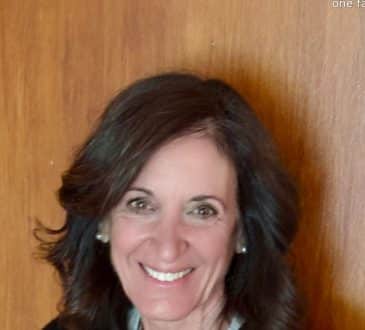The Recipe For Success: The Willingness To Experiment

Have successful people simply been luckier in life than everyone else?
Of course, luck plays a role in shaping success in life. Everyone can name countless examples of chance events and happy coincidences in their own lives. The question is, however, just how big a role does luck actually play?
Whether chance presents you with a good opportunity or not is not the key question, but rather:
- Do you actually recognize the opportunity in front of you? Or do you fail to appreciate it for what it is? As the Swiss author Max Frisch once said, “Chance shows me what I have an eye for.”
- And if you do recognize your lucky break, do you take advantage of it? Do you act? Or are you someone who says: “Maybe now is not the right time. Perhaps it’s something to think about one day…”
The likelihood that someone would only ever experience either good or bad luck during their lifetime is very low. Over many years and decades, in most cases, good and bad luck should balance each other out.
Taking joy from swimming against the current.
Much more important than “luck” is the willingness to swim against the current. Successful entrepreneurs and investors are usually nonconformists. Take the example of Jim Rogers, whom I met in Singapore.
Jim Rogers studied history and philosophy at Yale and Oxford before he took a job on Wall Street in 1968. During hard times for the U.S. stock market, he succeeded in laying the foundations for his wealth and success. Rogers met George Soros at a major investment bank. Together, they founded the Quantum Fund. They tore up the investment banking rulebook, buying stocks, commodities, currencies and bonds from all over the world. They were also among the first to use innovative strategies such as short selling. They made investments nobody else would have dreamt of at the time and discovered new and interesting markets worldwide.
Unlike most other investors, Rogers bought shares in companies that were in trouble. In the mid-seventies, for example, he invested heavily in the aircraft company, Lockheed. Rogers once told the story of a fancy dinner with bankers and investors. One of the other guests had heard that Rogers had been buying Lockheed shares. At that time, Lockheed was hit by a number of scandals and getting bad press nearly every day. The company’s share price had collapsed.
“Who would invest in a company like that?” wondered one of the guests—loudly enough that everybody at the dinner could hear him. The other guests joined in the laughter. Rogers felt humiliated—after all, he was the butt of their joke.
But: “He who laughs last, laughs longest.” Rogers had done his homework and he was right with his positive analysis of the company. The share price shot up and his fund made a huge profit. At the same time as the S&P 500 Index rose by just 47%, the Quantum Fund managed by Rogers and Soros gained an incredible 4,200%. Rogers explained, “When other people are laughing at you, you know you’re going in the right direction. The more people are laughing at you, the more likely you’ll turn out to be right.”
The Austrian economist Joseph Schumpeter defined an entrepreneur as someone who goes against majority opinion, or at least acts independently of what the majority thinks.
The formula for success
Many books stress the importance of persistence, and that’s true. But staying power alone is no guarantee of success. It needs to be combined with another very important characteristic: The willingness to experiment. Experimentation is more important than a precise business plan: Michael Bloomberg, No. 9 on the Forbes list of the richest people in the world with assets of $55 billion, details the earliest days of his company. One of his key insights is that rigid planning can do more harm than good: “You’ll inevitably face problems different from the ones you anticipated. Sometimes you’ll have to ‘zig’ when the blueprint says ‘zag.’ You don’t want a detailed, inflexible plan getting in the way when you have to respond instantly.” While his competitors were still busy trying to come up with the perfect final design, he was already working on the fifth version of his prototype. “It gets back to planning versus acting. We act from day one; others plan how to plan—for months.” Bloomberg stressed that making forecasts about new business ideas is mostly meaningless, explaining that “the noise in the assumptions you have to make is so great, and the knowledge you have of strange areas so limited, that all the detailed analysis is usually irrelevant.”
Larry Page and Sergej Brin, worth $50.8 and $49.0 billion, are ranked No. 10 and 14 on the Forbes list of the richest people in the world. They didn’t have a full business plan when they started and they changed their business model again and again. The two creators of Google, both born in 1973, had a bright idea—they wanted to build the best search engine in the world. Neither of the guys had a clear idea of how the company would make money, though it seemed to them that if they had the best search engine, others would want to use it in their organizations.
Are these examples just exceptions? And how important are business plans anyway? A 2010 scientific study compared the growth of more than 11,000 companies. The study found that planning did improve business performance. However, the study also found that this applies more to established companies than startups. And the researchers stressed that for any business plan, it is more important to set goals and be willing to change the business model than it is to try and predict business developments in detail.
Written by Dr. Rainer Zitelmann. Have you read?
For those who are planning their next business trip, read on for our list of the world’s best cities for bleisure travelers. As you continue to travel, we continue to listen: Here are the best hotels for business travelers to stay in Athens, Crete, Kefalonia Island, Corfu Island, Santorini Island, Halkidiki, Mykonos Island, Rhodes Island. Skiathos Island, Elounda (Crete) Kissamos (Crete) .
Bring the best of the CEOWORLD magazine's global journalism to audiences in the United States and around the world. - Add CEOWORLD magazine to your Google News feed.
Follow CEOWORLD magazine headlines on: Google News, LinkedIn, Twitter, and Facebook.
Copyright 2025 The CEOWORLD magazine. All rights reserved. This material (and any extract from it) must not be copied, redistributed or placed on any website, without CEOWORLD magazine' prior written consent. For media queries, please contact: info@ceoworld.biz








